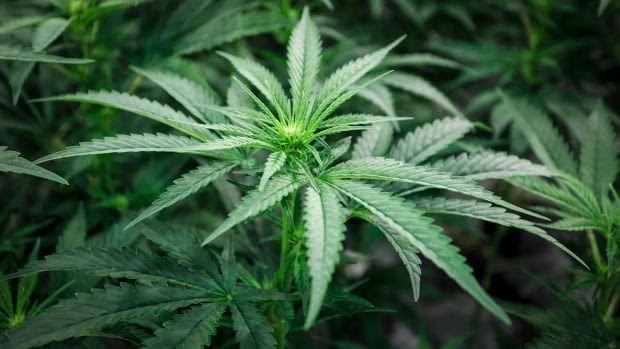(By Rabbi Yair Hoffman for 5tjt.com)
Yesterday, one of the top marijuana analysts (Cowen) announced that since Corona Beer maker Constellation Brands (STZ) is down – it is the perfect investment for 2019. Why is that? Because earlier this year, Canopy Growth Corporation landed a $4 billion deal investment from Corona beer-maker Constellation Brands.
Recently, Rav Yitzchok Zilberstein Shlita was asked whether it was permitted to invest in an American company that produces and sells Hashish and Marijuana in areas where the law permits its sale – even for non-medical purposes. The question was distributed in the Kislev edition of Vavei HaAmudim (Siman 6). The following is an unauthorized translation of Rav Zilberstein’s response.
“This drug is not forbidden on account of the fact that the law forbids it. Rather, it is forbidden because this drug is harmful to people. It brings damage to the world. If our sages have said that one who gambles with dice is ineligible to testify because he does not partake in yishuvo shel olam, certainly it is forbidden to involve oneself in something that is destructive to the world. These people also bring danger to others.”
Rav Zilberstein clearly forbids investing in such a company. What follows is a further halachic and medical analysis of the topic.
RAV MOSHE FEINSTEIN’S VIEW
It is not just Rav Zilberstein’s view that marijuana is destructive to the world. Decades ago, Rav Moshe Feinstein zt”l addressed the question of marijuana in his Igros Moshe Yoreh Deah Vol. III #35. Rav Moshe pointed to no less than nine very serious issues in which marijuana affects a person.
- It affects a person physically
- And mentally.
- It further prevents him from studying Torah properly
- and from davening properly.
- It further affects the proper performance of Mitzvos, eliciting a zombie-like element in their performance.
- Rav Moshe also presents the idea that elicits within the user a stronger desire for things, and explains that this is one of the problems associated with a Ben Sorer U Moreh, the rebellious son discussed in Dvarim 21:18.
- Rav Moshe further explains that it is an abnegation of the Mitzvah of Kivud Av v’Aim
- It is also a violation of the Ramban’s understanding of Kedosim ti’hiyu, the commandment to be holy.
- Finally, Rav Moshe writes that such activity induces the user to violate other Mitzvos in the Torah, thus increasing impurity in Israel.
As far as gentiles are concerned, many of Rav Moshe’s points apply to them as well. The first two certainly apply to gentiles. It also prevents gentiles from studying academics properly.
ANOTHER ISSUE, AND THREE MORE VERSES
Two other contemporary Poskim have voiced to this author their opinion that Marijuana, legal or not, still most certainly constitutes a “gateway drug” leading the user to begin experimenting with other drugs that are illegal and dangerous. This obligation appears to be a biblical one predicated upon the verse, “venishmartem me’od bnafshosaichem – And you shall be very careful regarding yourselves (Dvarim 4:9).” not just limited to “veNishmartem” (Dvarim 4:9). The verse later on (Dvarim 4:15), “Rak hishamer lecha” is understood by most Poskim to actually comprise a second Mitzvah (See Rav Chaim Kanievsky Shlita Shaar HaTeshuvos #25). There is also a third Mitzvah, “V’Chai Bahem – And you shall live by them” (VaYikra 18:5).
MEDICAL OPINION
We will start with the physical and mental effects. According to a long term study of Swedish youth cited by the study, the odds on getting lung cancer if one regularly uses marijuana increase 200%. Yet another concern is for driving. The authors of the study have noted that impairments can last up to a full day after a single ingestion.
What about the mental effects? The study cites the possible effects on mood, and particularly depression, and the possibility of dependence. Marijuana use has been linked to higher rates of mental illness, including thought disorders, depression and anxiety, as well as — according to one prominent study published last year — diminished IQ over time.
EVEN WORSE THAN RAV MOSHE’S TIME
As far as the other effects mentioned by Rav Moshe are concerned, someone has pointed out that they apply even more so nowadays, because the concentration of THC has clearly increased. Thus the issues of Bitul Torah, effect upon Davening and Mitzvah performance clearly apply even more. The same is true with Rav Moshe’s latter points.
MOST OF THE MEDICAL WORLD IS NOT BEHIND IT
With all the hoopla in the growing legalization of marijuana, let us note that most of the medical world is not backing it up. Why is most of the medical world not backing it up thus far? According to an article in Arthritis Care and research by Mary-Ann Fitzcharles, MD, of McGill University in Montreal, and colleagues, at the current state of affairs, there are a number of issues regarding medical marijuana including acute and chronic risks, a lack of evidence for efficacy, and the absence of data on appropriate dosing.
This was said about medical marijuana. Certainly it would apply to the indiscriminate ingestion of it for non-medical purposes.
Sharon Levy, an assistant professor of pediatrics at Harvard Medical School and chair of the American Academy of Pediatrics committee on substance abuse, recently told the Washington Post that she is a strong proponent of studying and developing medications from the active ingredients in marijuana. But she does not support the idea of patients or parents making their own oral preparations and guessing at proper dosage without knowing long-term side effects. “It is a bad idea. When I look at the accumulation of studies about marijuana and children, I am very concerned,” she said. The authors of the study have written that “Simply acceding to patient demands for a treatment on the basis of popular advocacy, without comprehensive knowledge of an agent, does not adhere to the ethical standards of medical practice..”
One major obstacle to the acceptance of medical use is the wide variation of active compounds in the plant, with THC concentration ranging from 1% to 30% of the plant and blood levels among individuals who inhale it that range from an estimated 7 ng/mL to 100 ng/mL.
It is also interesting to note that of all the tens of thousands of recommendations for medical marijuana in the state of Colorado, almost half of these recommendations had been made by only 15 physicians. This is a clear indication that the medical world has not embraced medical marijuana as the panacea in which the media has marketed it. The authors of the study point out that the motives for this medical behavior should be questioned and raises ethical concerns.
Once again, this was said in regard to medical marijuana. How much more so are the dangers to the world for legalized use of this drug. Rav Zilberstein’s view against investing in it have precedence in both Rav Moshe’s responsum as well as medical opinion.
Getting back to Rav Zilberstein’s psak, however, what was not addressed was the idea of investing in normal companies that are also investing in marijuana. In other words, the company that produces Corona beer is a mainstream company – aside from their 4 billion dollar investment in marijuana. What is the halacha when a mainstream company combines its growth strategy with a forbidden one? Does Rav Zilberstein’s psak still apply?
The author can be reached at [email protected]
(YWN World Headquarters – NYC)












13 Responses
I’m a medical marijuana patient and it has greatly improved my quality of life. Bitul Torah? I can learn much more now when I’m not nauseous all the time. Cannabis is a safe medicinal plant if used responsibly.
Rabbi Hoffman, there is room to say that investing in outright tarfus is permissible, let alone a plant which can be used for whatever purpose the user finds for themselves and is not inherently good or bad. Refer to Journal of Halacha and Contemporary Society 24:pages 76-86 in great depth on this issue. Shearim Metzuyanim B’halacha 64:4 kuntres achron, 114:28. Investing in a mutual fund which can invest in non-kosher is permitted (Journal of Halacha and Contemporary Society 24:pages 93-94).
Why is this a new phenomenon?
Or question?
Cigarettes are known to be harmful yet no one posed the question of whether one is permitted to invest in it.
Same applies to vaping and a whole host of other things in the world.
Deli meats for example and most hot dogs are are known to be be carcinogic ,yet many have invested in deli and hot dog manufacturing.
The list is endless.
It’s clear the author of this article has never tried Marijuana.
It’s a LOT safer then alcohol and has killed a total of 0 people.
The Rabonim mentioned above Paskened strictly, at a time when science belived it was dangerous (as can clearly be seen from their listed non-existant ‘symptoms’), and they were told such & more.
The fact is as it becomes legal in more countries it becomes less and less of a ‘gateway drug’s.
Yair is normally factual, but in this case it seems facts have taken a back seat.
Smoking is assur, so smoking pot which is shown here to increase possibility of lung cancer 200% certainly
So what said these learned men about Israel producing MJ for it’s citizens who use it medicinally? Oh and it’s a pity none have looked at the Israeli research on MJ, they are among the world leaders in the field.
I think that there is a difference between medical marijuana and recreational pot.
To invest in a company that will or does produce medical marijuana should not be a problem. However, even though R. Moshe points out the dangers of recreational marijuana, the question is like investing in treif meat store. We should NOT enjoy the product, but are we allowed to benefit from its sales?
I don’t see a clear answer to this question!
The beer company is looking into cbd not weed. Cbd is the oil of weed and has no thc it has not affect on mental capacity whatsoever. Does this affect the psak not to invest?
I think all of the factors that r Moshe listed also apply to any sleep medication and almost all antidepressants. In a case where weed was prescribed by a dr would r Moshe straight out assur it ? How about it For chimotherapy nausea ? Seems like this article is too narrow in scope for the many circumstances.
Now can we sponsor kollelim in areas where a good percentage of kolel guys will use money to buy cigars ? We all know where .
MODERATOR’S NOTE: THIS IS FACTUALLY INCORRECT. THEY BOUGHT CANOPY GROWTH FOR 4 BILLION DOLLARS. THERE IS NO HETER TO MAKE UP FACTS. A Carleton University grad, Bruce Linton took is Founder, Chairman and Co-CEO of Canopy Growth. Mark Zekulin is Co-CEO and President. The company was the first federally regulated, publicly traded cannabis producer in North America, traded on the Toronto Stock Exchange as WEED. It began trading as CGC on the New York Stock Exchange on May 24, 2018, as the first cannabis producer on the NYSE. On October 17, 2018 — marijuana became legal in Canada for recreational use. Bruce Linton was in St. John’s, Newfoundland and sold the first legal gram of cannabis in the country. Until then, cannabis was only legal for medical purposes; growers were licensed by Health Canada under the Access to Cannabis for Medical Purposes Regulations (ACMPR).The company was described as “Canada’s first cannabis unicorn with a $1 billion dollar valuation” by the Financial Post news organization in November 2016.
The company was renamed to Canopy Growth Corp. in September 2015 with two established brands.[14] Specifically, CGC is the parent company of licensed cannabis producers Tweed Inc., Tweed Farms Inc., Spectrum Cannabis., as well as newly acquired companies.
Cannabis may be legal in some states but it is not legal according to the Federal Government which overrides state law.
Cannabis is a Schedule I drug under the federal Controlled Substances Act of 1970, cannabis (legal term marijuana) is considered to have “no accepted medical use” and have a high potential for abuse and physical or psychological dependence. Cannabis use is illegal for any reason, with the exception of FDA-approved research programs. However, individual states have enacted legislation permitting exemptions for various uses, mainly for medical and industrial use but also including recreational use.
Under federal law, it is illegal to possess, use, buy, sell, or cultivate marijuana in all United States jurisdictions, since the Controlled Substances Act of 1970 classifies marijuana as a Schedule I drug, claiming it has a high potential for abuse and has no acceptable medical use. Despite this federal prohibition, some state and local governments have established laws attempting to decriminalize cannabis, which has reduced the number of “simple possession” offenders sent to jail, since federal enforcement agents rarely target individuals directly for such relatively minor offenses. Other state and local governments ask law enforcement agencies to limit enforcement of drug laws with respect to cannabis. However, under the Supremacy Clause of the United States Constitution, federal law preempts conflicting state and local laws. In most cases, the absence of a state law does not present a preemption conflict with a federal law.
Moderator I wasn’t making up facts I was mistaken. I know Coca Cola was looking to get CBD from weed and got confused in between industries and headlines
https://www.forbes.com/sites/bencurren/2018/10/10/coca-cola-explores-cbd-blazing-a-trail-for-other-brand-giants-to-embrace-cannabis/
@rt
Before you say smoking is assur just think about the pain that people are going through. I have never smoked because I don’t agree with the ideology that is behind it but if someone is smoking by himself and for his own reasons I feel bad for the person and wish that I could help but I don’t think it’s assur cuz it’s his own deal which he should deal with but I wouldn’t be so quick to just say it’s assur.
Why are any if the listed reasons from Rav Moshe ZTl any different then alcohol ?
This only is further proof that Ribbonim are so unaware of the true facts / benefits Hemp and Marijuana researchi in the area’s of health and cannot be relied upon when it comes to making decisions today in the area of health and refuah in this area.